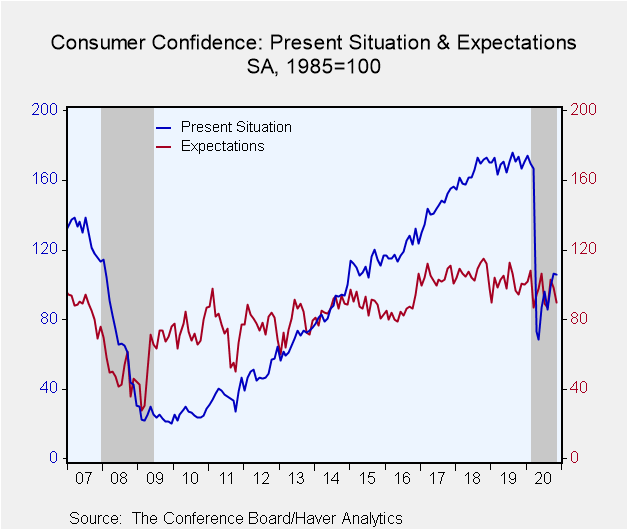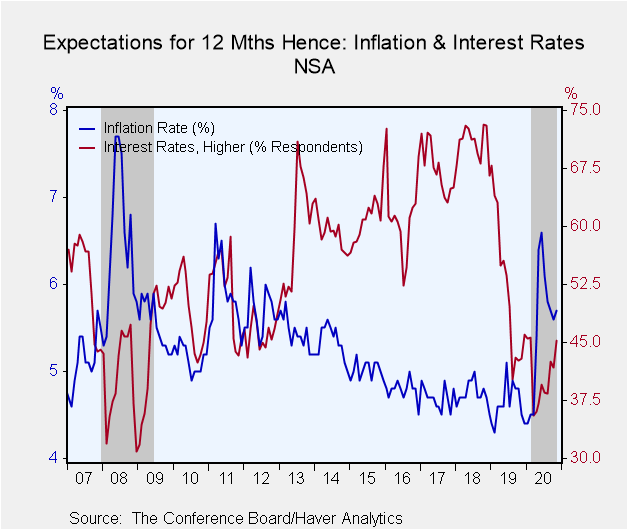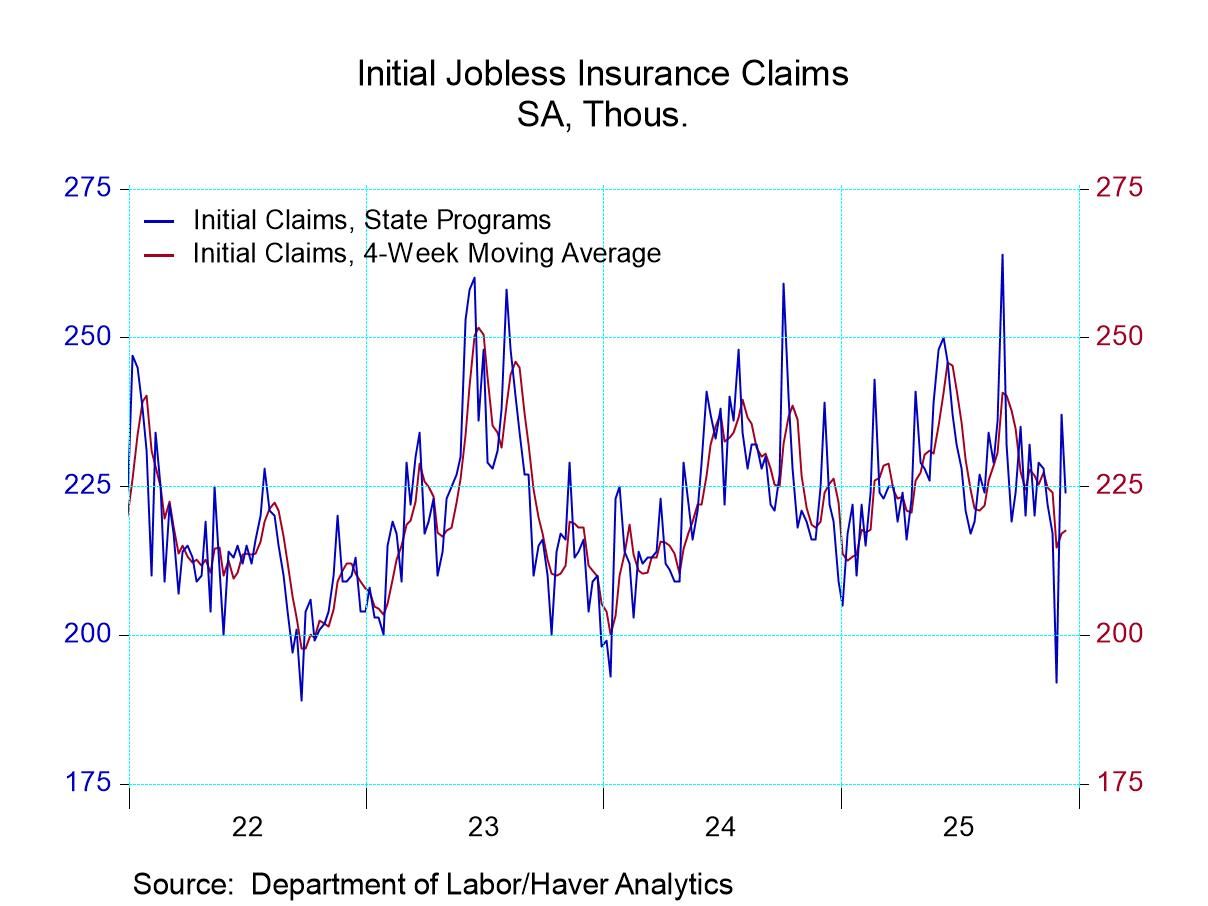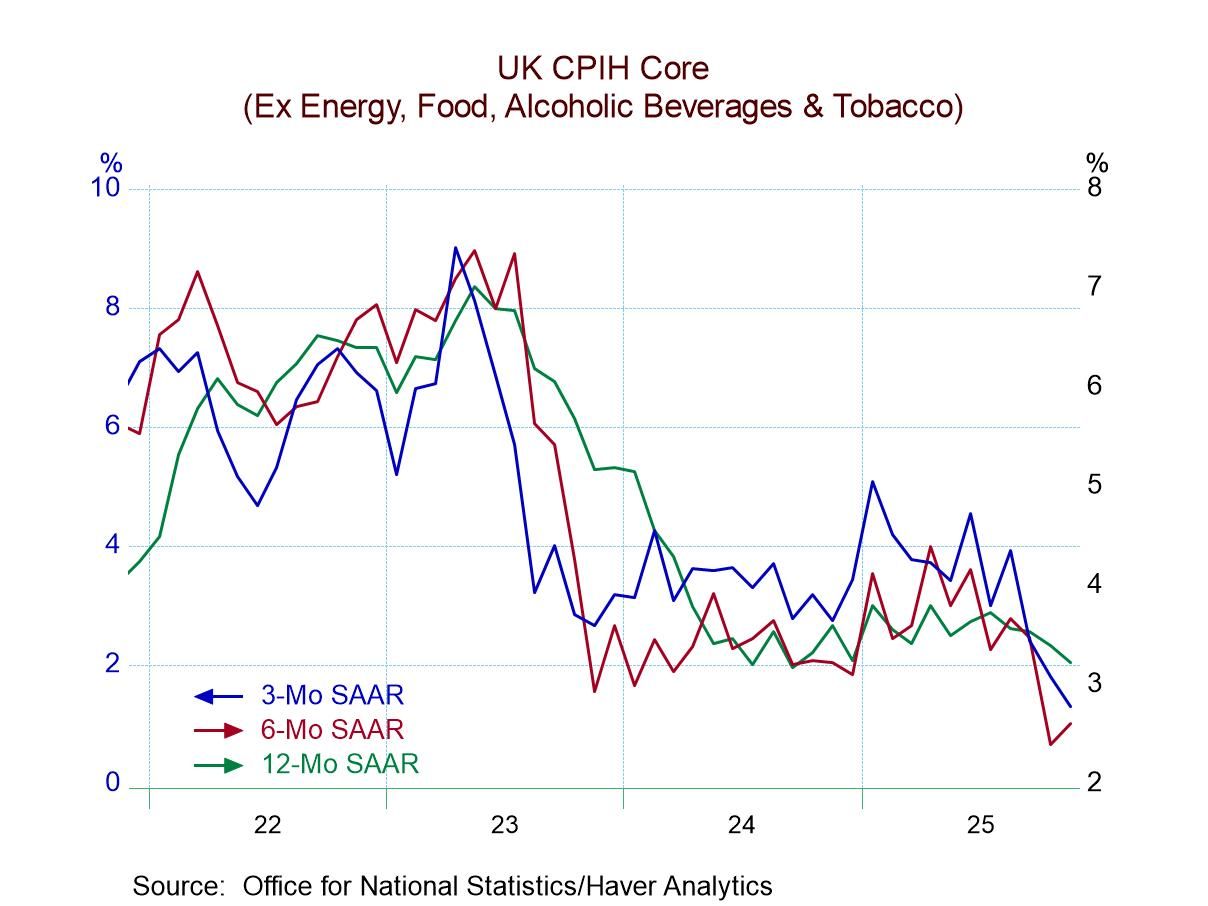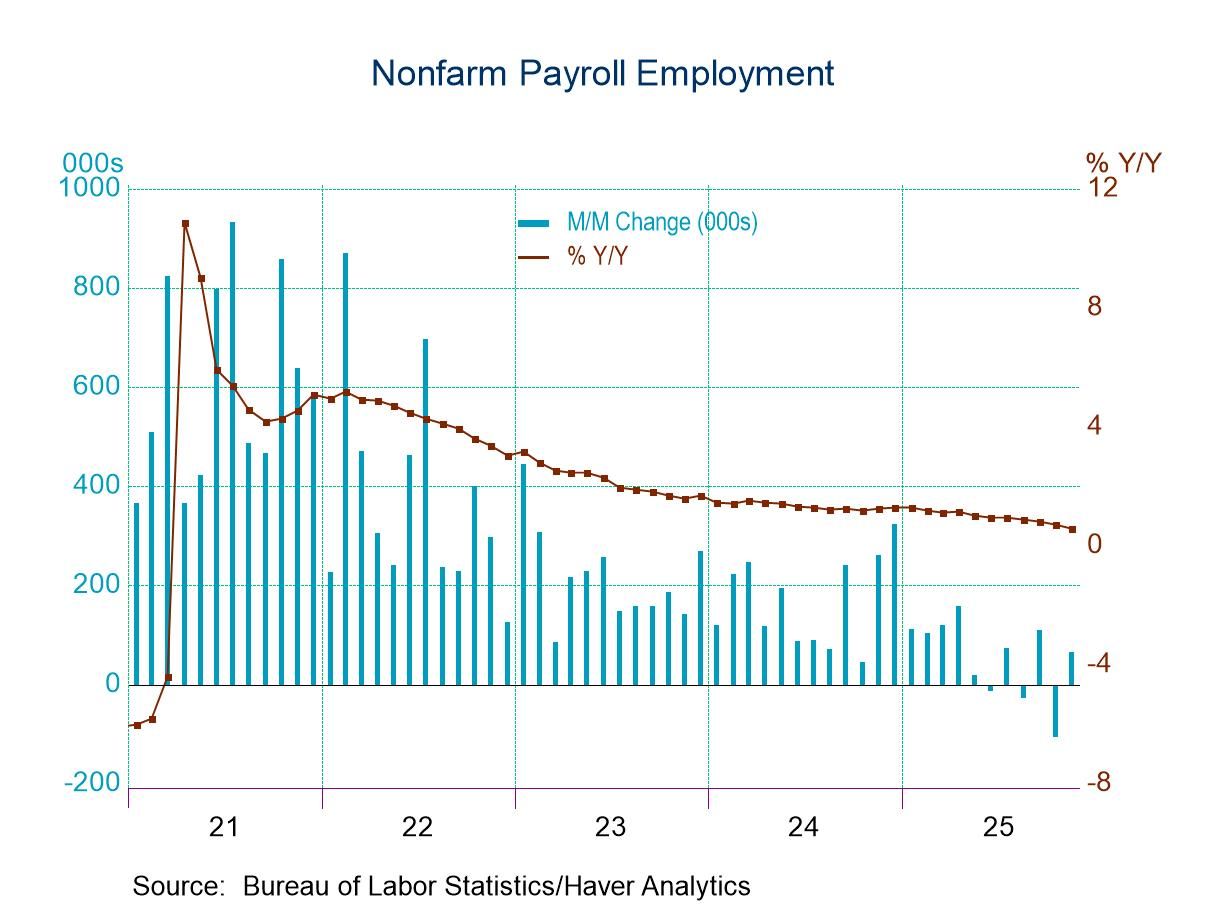 Global| Nov 24 2020
Global| Nov 24 2020U.S. Consumer Confidence Falls Sharply in November, Disappointing Expectations
by:Tom Moeller
|in:Economy in Brief
Summary
• Confidence declines significantly, both m/m and y/y. • View of present conditions eases, but expectations collapse. • Older individuals grow more pessimistic. The Conference Board's consumer confidence survey indicated widespread [...]
• Confidence declines significantly, both m/m and y/y.
• View of present conditions eases, but expectations collapse.
• Older individuals grow more pessimistic.
The Conference Board's consumer confidence survey indicated widespread deterioration during November. The index fell 5.2% (-24.2% y/y) to 96.1 from 101.4 in October, revised from 100.9 (1985=100). A decline to 99.0 had been expected in the Action Economics Forecast Survey. Over the last 25 years, there has been a 51% correlation between the level of confidence and the y/y change in real consumer spending.
The index of expected conditions in six months fell 8.9% (-10.8% y/y), the fourth decline in five months. Expectations have fallen 15.6% since June. A greatly lessened 27.4% respondents expected improvement in business conditions in the next six months while a slightly increased 19.8% expected a worsening. A fewer 25.9% expected a rise in employment, down from 41.2% in April, while a fairly steady 20.5% expected a decline. Income was expected to improve by a steady 17.6% of respondents, while a lessened 13.3% expected a decline.
The present situation index eased 0.3% in November, after having risen in October to the highest level since March. The decline reflected a lessened 17.6% of respondents who felt that business conditions were good and a lessened 33.5% who felt they were bad. The labor market was perceived as slightly better with the "labor market differential" (jobs plentiful minus jobs hard-to-get) remaining in positive territory. Jobs were viewed as hard to get by a steady 19.5% of respondents, down from 34.5% in April.
Expectations for the inflation rate in twelve months edged higher in November to 5.7%, but remained down from a 6.6% high in June. A greater 45.2% felt that interest rates would increase during the next twelve months while a greatly lessened 16.4% felt they would decline. Plans to buy a house, new or existing, increased in this month to 7.2% of respondents, up from a 4.7% low twelve months ago. A higher 11.6% of respondents planned to buy a car, up from 8.1% in April, and 43.9% planned to buy a major appliance within six months, down from 55.0% in February.
By age group, the index of confidence amongst those under 35 rose 2.2% (-10.8% y/y). Confidence of those aged 36-54 declined 10.7% (-27.8% y/y) to the lowest level in three months. And for those over age 55, confidence fell 5.3% (-27.6% y/y), to a three-month low.
The Consumer Confidence data are available in Haver's CBDB database. The total indexes appear in USECON, and expectations are in AS1REPNA.
| Conference Board (SA, % Chg.) | Nov | Oct | Sep | Nov Y/Y | 2019 | 2018 | 2017 |
|---|---|---|---|---|---|---|---|
| Consumer Confidence Index | -5.2 | 0.1 | 17.4 | -24.2 | -1.4 | 8.0 | 20.7 |
| Present Situation | -0.3 | 7.4 | 15.3 | -36.4 | 3.1 | 13.8 | 20.3 |
| Expectations | -8.9 | -4.6 | 18.8 | -10.8 | -6.0 | 2.6 | 21.1 |
| Consumer Confidence by Age Group | |||||||
| Under 35 Years | 2.2 | 5.6 | 12.0 | -10.8 | 0.3 | 2.7 | 6.4 |
| Aged 35-54 Years | -10.7 | 4.8 | 15.1 | -27.8 | -1.1 | 7.0 | 16.4 |
| Over 55 Years | -5.3 | -5.8 | 21.8 | -27.6 | -1.9 | 11.8 | 33 |
Tom Moeller
AuthorMore in Author Profile »Prior to joining Haver Analytics in 2000, Mr. Moeller worked as the Economist at Chancellor Capital Management from 1985 to 1999. There, he developed comprehensive economic forecasts and interpreted economic data for equity and fixed income portfolio managers. Also at Chancellor, Mr. Moeller worked as an equity analyst and was responsible for researching and rating companies in the economically sensitive automobile and housing industries for investment in Chancellor’s equity portfolio. Prior to joining Chancellor, Mr. Moeller was an Economist at Citibank from 1979 to 1984. He also analyzed pricing behavior in the metals industry for the Council on Wage and Price Stability in Washington, D.C. In 1999, Mr. Moeller received the award for most accurate forecast from the Forecasters' Club of New York. From 1990 to 1992 he was President of the New York Association for Business Economists. Mr. Moeller earned an M.B.A. in Finance from Fordham University, where he graduated in 1987. He holds a Bachelor of Arts in Economics from George Washington University.



